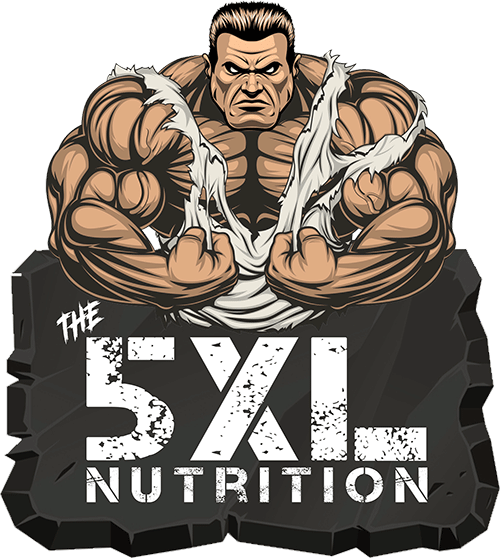Natural Alternative for Creatine: Best Options for Energy, Strength, and Performance
Creatine is one of the most researched and effective supplements for boosting muscle strength, power, and recovery. It works by replenishing ATP (adenosine triphosphate), the body’s primary energy source during high-intensity exercise. But many athletes and fitness enthusiasts ask: Are there natural alternatives to creatine that can offer similar benefits?
The good news is that certain foods, nutrients, and lifestyle strategies can help your body naturally enhance energy production and muscular performance without depending on synthetic creatine powders.
Why People Look for Natural Alternatives to Creatine
While creatine is generally safe and effective, some individuals may:
- Prefer whole-food–based nutrition instead of supplements.
- Experience mild digestive discomfort when using creatine monohydrate.
- Follow a plant-based or vegetarian diet where natural creatine intake from meat and fish is low.
- Want to diversify their approach to energy and muscle support.
For these reasons, exploring natural creatine substitutes can be a smart choice.
Top Natural Alternatives for Creatine
1. Red Meat and Fish (Natural Creatine Sources)
Creatine is naturally found in beef, salmon, and tuna. Regular consumption of these foods can increase creatine stores in the muscles. However, the concentration is much lower than a supplement—about 1–2 grams per pound of raw meat.
Best for: Non-vegetarians who want a natural creatine boost.
2. Beta-Alanine
Beta-alanine is an amino acid that helps increase carnosine levels in muscles. Carnosine buffers lactic acid buildup, reducing fatigue and improving endurance during high-intensity workouts Natural alternative for creatine.
Why it’s a good alternative: Like creatine, beta-alanine enhances performance in short bursts of intense activity.
3. Branched-Chain Amino Acids (BCAAs)
BCAAs—leucine, isoleucine, and valine—support muscle recovery and reduce exercise-induced fatigue. They stimulate protein synthesis, helping the body recover after strenuous training.
How it compares: BCAAs won’t increase ATP like creatine but can reduce breakdown of muscle tissue and promote faster recovery.
4. Essential Amino Acids (EAAs)
Unlike BCAAs, EAAs provide the full spectrum of amino acids required for muscle growth and repair. They are particularly useful for those on a vegetarian or vegan diet, where protein intake may be limited.
5. Ribose (D-Ribose)
Ribose is a sugar molecule that plays a direct role in ATP production. Supplementing with ribose may help restore energy after high-intensity workouts, much like creatine.
Best for: Athletes looking for faster recovery and reduced fatigue.
6. Beetroot Juice (Nitrates)
Beetroot is rich in nitrates, which improve blood flow, oxygen delivery, and endurance. Studies show that beetroot juice can enhance performance in endurance sports and reduce fatigue.
Why it’s effective: Works differently than creatine but still boosts overall athletic performance Natural alternative for creatine.
7. Adaptogens (Ashwagandha & Rhodiola Rosea)
Adaptogenic herbs help the body cope with stress, improve recovery, and enhance strength. Ashwagandha has been shown to improve muscle mass, testosterone levels, and strength. Rhodiola supports endurance and mental stamina.
8. HMB (Beta-Hydroxy Beta-Methylbutyrate)
HMB is a compound produced from leucine. It helps prevent muscle breakdown and supports recovery after intense exercise.
How it helps: Works best for those in cutting phases or beginners who want to preserve lean muscle.
Lifestyle-Based Natural Alternatives
Apart from nutrition, certain lifestyle strategies can mimic some of the benefits of creatine:
- High-Protein Diet: Supports muscle repair and recovery naturally.
- Proper Sleep: Boosts growth hormone and testosterone, improving recovery.
- Strength Training: Stimulates natural production of energy and adaptation similar to creatine’s effect.
- Hydration: Water is essential for ATP production and muscle contraction.
FAQs on Natural Alternatives for Creatine
Q1: Can vegetarians and vegans get enough creatine naturally?
Not easily—since creatine is mostly in animal sources. However, EAAs, BCAAs, and plant-based adaptogens can help fill the gap.
Q2: Is beta-alanine better than creatine?
No. Beta-alanine works differently—it delays fatigue, while creatine enhances short-term power. Both can complement each other.
Q3: Can I replace creatine entirely with food?
It’s possible but difficult. You’d need very high amounts of meat and fish. For strict vegetarians, alternatives like EAAs, beetroot, and ashwagandha are better.
Q4: Do natural alternatives work as fast as creatine?
Creatine is unique in rapidly boosting ATP. Natural options provide broader benefits but may not match creatine’s quick impact on explosive strength.
Conclusion
Creatine remains one of the most effective and scientifically proven supplements for strength and recovery. However, if you prefer natural alternatives, options like beta-alanine, BCAAs, beetroot, ribose, ashwagandha, and protein-rich foods can offer noticeable performance and recovery benefits.
At the end of the day, the best approach may not be to replace creatine entirely but to combine natural alternatives with a balanced diet, proper training, and recovery habits. This way, you’ll enjoy sustainable progress in your fitness journey—whether you use supplements or go fully natural.
